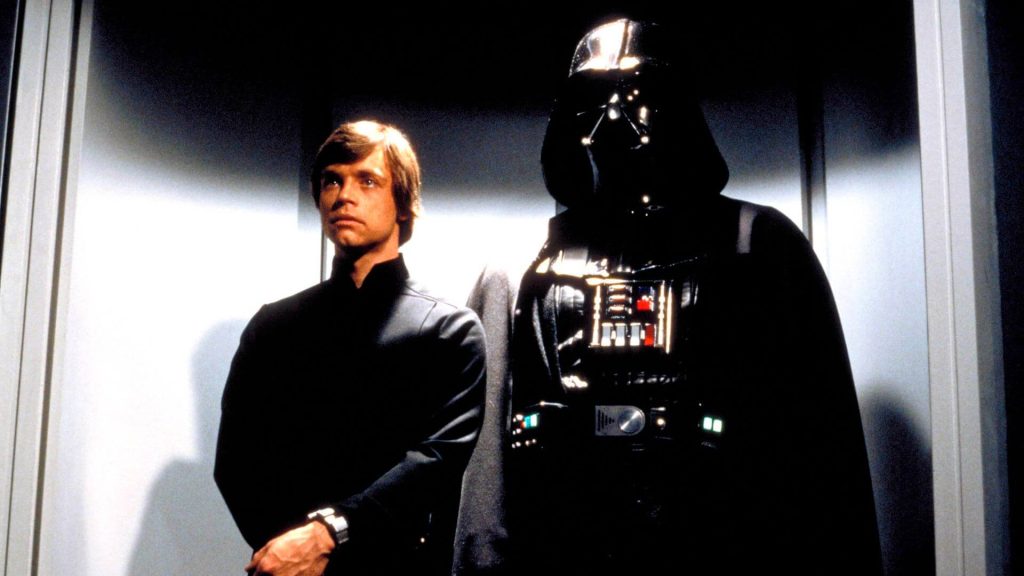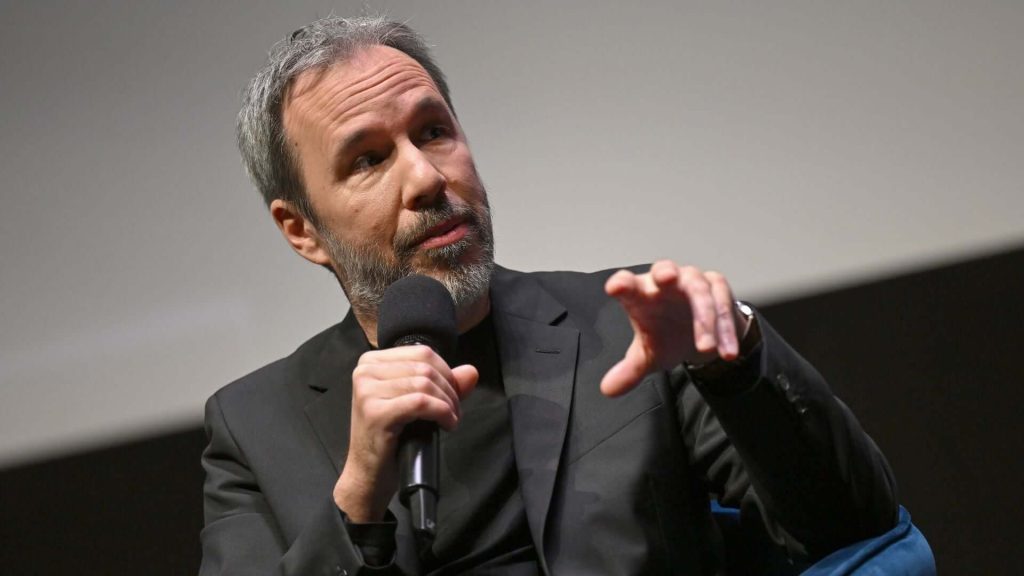World News
Denis Villeneuve and how Star Wars: Return of the Jedi changed his views on the franchise
Denis Villeneuve, the celebrated director behind films like Blade Runner 2049 and Dune, has captivated audiences with his complex storytelling and visually stunning films. His unique approach to science fiction has earned him a reputation as one of the most innovative filmmakers of his generation. However, despite his success in the genre, Villeneuve revealed a surprising and somewhat controversial personal opinion in a recent interview: he lost interest in the Star Wars franchise after watching Return of the Jedi in 1983. In this article, we will explore Villeneuve’s disillusionment with Star Wars, focusing on how his experience with the third installment of the original trilogy shaped his view of the entire franchise.
Villeneuve’s comments are particularly intriguing given the enduring popularity and influence of Star Wars on the cinematic landscape. Star Wars has become one of the most iconic franchises in film history, with a dedicated fanbase spanning generations. For many, it is a defining cultural touchstone that influenced their own creative pursuits. However, Villeneuve’s story highlights how a single film can sometimes change a filmmaker’s perception of a beloved series.
In this article, we will dive deep into Villeneuve’s relationship with Star Wars, from his early love of the franchise to his eventual disenchantment with it. We will explore the cultural significance of Star Wars, the impact Return of the Jedi had on Villeneuve, and the broader implications of his shift in perspective. Through this, we will also examine the complex nature of fandom and the way in which a single film can both inspire and disillusion.
Denis Villeneuve’s Early Affinity for Star Wars
Denis Villeneuve’s relationship with Star Wars began like many others—through the first two films of the original trilogy. Released in 1977 and 1980, A New Hope and The Empire Strikes Back became cultural phenomena, defining the blockbuster era of cinema. These films introduced audiences to a vast, otherworldly galaxy filled with intriguing characters, thrilling space battles, and epic confrontations between good and evil. For many, these movies sparked a lifelong love affair with the Star Wars franchise, and Villeneuve was no exception.
Villeneuve has often spoken about his early fascination with Star Wars, especially A New Hope. The movie, with its blend of science fiction and mythology, captivated his imagination and left a lasting impression. He admired the world-building, the strong character arcs, and the sense of adventure that Star Wars provided. For a young Denis Villeneuve, Star Wars was more than just a film; it was an entire universe that invited him to dream. In the interview where he discussed his disillusionment with the franchise, he described his experience with the first two Star Wars films as something formative.
For Villeneuve, the early films of Star Wars were a defining part of his cinematic education. A New Hope ignited his imagination, and The Empire Strikes Back, which is often regarded as the best film in the series by critics and fans alike, only deepened his admiration. The Empire Strikes Back provided a darker, more complex narrative, adding layers to the characters and mythology. The introduction of Darth Vader’s iconic reveal as Luke Skywalker’s father was a game-changer, creating a story that combined personal stakes with universal themes of destiny and conflict.
At this stage, Villeneuve’s relationship with Star Wars was one of admiration. He appreciated the storytelling, the groundbreaking special effects, and the deep emotional resonance of the saga. The Star Wars universe seemed endless, filled with infinite possibilities, and Villeneuve was just one of many filmmakers and fans who were inspired by George Lucas’ vision.

Return of the Jedi: The Film That Changed Everything
While A New Hope and The Empire Strikes Back ignited his love for Star Wars, it was Return of the Jedi that soured Villeneuve’s view of the franchise. Released in 1983, the third installment of the original trilogy was highly anticipated, but Villeneuve’s reaction to it was not one of excitement. In his interview, he spoke candidly about his disillusionment with the film, citing specific reasons for his shift in perspective.
One of the main aspects of Return of the Jedi that disappointed Villeneuve was its tone. The film, he felt, took a much more lighthearted and childish turn, particularly with the inclusion of the Ewoks. These teddy bear-like creatures, who played a central role in the final battle of the movie, were a stark contrast to the darker, more mature themes of The Empire Strikes Back. Villeneuve felt that the Ewoks were a ploy to make the film more appealing to younger audiences, sacrificing the complexity and maturity that had defined the previous installment.
For Villeneuve, this tonal shift marked a significant turning point in his relationship with Star Wars. He described the film as becoming “like a recipe” that was more about following a set formula than continuing the narrative in an organic and meaningful way. The use of the Ewoks, he believed, reduced the emotional stakes of the story and made the conflict feel less significant. In essence, Villeneuve felt that Return of the Jedi undermined the powerful momentum built by The Empire Strikes Back and weakened the emotional payoff of the trilogy.
Beyond the Ewoks, Villeneuve’s critique of Return of the Jedi also touched on the way the film handled its characters and themes. In particular, the redemption of Darth Vader, which was central to the film’s narrative, did not resonate with Villeneuve in the same way that other fans found it powerful. For him, the resolution of such a complex character felt too neatly packaged and lacked the depth he had come to expect from the series. The film’s focus on action and spectacle, at the expense of the more introspective and dramatic elements of the previous films, led to a sense of disappointment for Villeneuve.
The Disillusionment: From Inspiration to Critique
Denis Villeneuve’s feelings toward Star Wars changed permanently after Return of the Jedi. He went from being an avid fan to feeling alienated by the very franchise that once inspired him. In his view, Star Wars had lost its edge, becoming a more predictable and commercialized product. The magic that he had once found in the series had been diluted, replaced by a formulaic approach to filmmaking that prioritized mass appeal over creative innovation.
Villeneuve’s critique of Return of the Jedi can be seen as part of a broader conversation about the commercialization of blockbuster filmmaking. As Star Wars evolved, it became more focused on its merchandise, appeal to younger audiences, and establishing a franchise that could be marketed across multiple platforms. For Villeneuve, this shift was disappointing because it seemed to diminish the artistic and cinematic qualities that had made the original films so groundbreaking. In his view, Return of the Jedi represented the beginning of the end for the creative spirit of Star Wars.
In the years following Return of the Jedi, Villeneuve watched as Star Wars became an even bigger cultural juggernaut, with more films, spin-offs, and expanded universe stories. However, his loss of interest in the franchise meant that he did not feel the same enthusiasm that many fans did when the prequel trilogy was released in the late 1990s and early 2000s. For him, the magic of the original films had been lost, and the subsequent entries in the series did not do enough to rekindle his passion.
Villeneuve’s disillusionment is significant because it speaks to a broader trend in the way franchises evolve over time. Star Wars began as a groundbreaking, genre-defining saga, but as it grew into a massive, multimillion-dollar franchise, it also became a commercial product. Villeneuve’s perspective shows how a fan can shift from admiration to disappointment when they feel that a beloved franchise has lost its original vision or artistic integrity.

The Impact on Villeneuve’s Career and Filmmaking Philosophy
Denis Villeneuve’s experiences with Star Wars have had a profound influence on his own filmmaking career. Having been a fan of the series in his youth, Villeneuve initially saw Star Wars as a model for how science fiction could be a blend of adventure and meaningful storytelling. However, his disillusionment with the franchise caused him to think more critically about the type of films he wanted to create.
In interviews, Villeneuve has often spoken about the importance of maintaining creative integrity and avoiding the commercialization of art. He is known for taking risks with his projects, often tackling complex themes and exploring intricate, thought-provoking narratives. His films, such as Arrival, Blade Runner 2049, and Dune, are filled with deep philosophical questions and emotional resonance, demonstrating a clear contrast to the more spectacle-driven approach of many modern blockbusters, including Star Wars.
Villeneuve’s disillusionment with Star Wars influenced his decision to stay away from franchises that were primarily driven by marketability and commercial success. For him, the most important aspect of filmmaking is telling a meaningful story that engages the audience on a deeper level. His decision to direct Dune, a beloved science fiction novel that has its own rich mythology and world-building, shows that Villeneuve is not interested in simply following the rules of blockbuster filmmaking. Instead, he aims to create films that are both visually stunning and intellectually engaging.
The tension between commercial success and creative integrity is a recurring theme in Villeneuve’s work. His films are a testament to his belief that science fiction can be a genre that challenges audiences and offers more than just visual spectacle. In many ways, his disillusionment with Star Wars helped shape his career and reinforced his commitment to creating films that prioritize artistic vision over profit.
A Legacy of Innovation: Villeneuve and the Future of Science Fiction Cinema
While Denis Villeneuve’s loss of interest in Star Wars may have marked a turning point in his cinematic journey, it also pushed him to create his own legacy of innovation in science fiction filmmaking. Villeneuve is now regarded as one of the foremost directors in the genre, known for his ability to blend visual grandeur with complex storytelling. His films, including Arrival and Dune, have brought a new level of sophistication and intellectual depth to the genre, and they stand as a testament to the power of science fiction to explore big ideas.
Villeneuve’s approach to filmmaking offers a stark contrast to the direction in which Star Wars has gone in recent years. While Star Wars has evolved into a sprawling, interconnected universe of films, TV shows, and other media, Villeneuve remains focused on telling intimate, self-contained stories that leave a lasting emotional impact. This emphasis on depth over spectacle is one of the reasons why Villeneuve’s work has resonated with so many viewers and critics alike.
As the science fiction genre continues to evolve, Villeneuve’s legacy will likely continue to shape the way filmmakers approach storytelling in the genre. His films offer a blueprint for how science fiction can be both visually stunning and thought-provoking, balancing spectacle with emotional depth. For Villeneuve, the future of science fiction cinema is one where creativity and originality are prioritized, and where the commercial pressures of big franchises like Star Wars do not overshadow the importance of meaningful storytelling.
In the end, Denis Villeneuve’s disillusionment with Star Wars after Return of the Jedi serves as a powerful reminder of the delicate balance between creativity and commercialization in filmmaking. While Star Wars remains one of the most influential franchises in cinema history, Villeneuve’s journey shows how a filmmaker’s personal relationship with a beloved series can shift as the franchise evolves. Through his own films, Villeneuve has carved out a space for science fiction that is both intellectually rigorous and emotionally resonant—proving that even in a world dominated by franchises, there is always room for innovation and artistry.
From thedragonfashion

